What's In Your Emotional Eating Toolbox?
Photo credit: Annie Spratt on Unsplash
Reading memoirs and watching documentaries are my drugs of choice. To observe how people experience life, to study their process with personal struggle - their emotional arc of an experience and what they do to cope - is both consoling and encouraging. It reminds me of the universal truths: life is messy; we all have pain; we struggle with it, but we also find ways to move through if we’re lucky. And ideally, overtime we learn to use tools that give us greater capacity to tolerate discomfort and do hard things.
Many of us have that thing we turn to when we’re sad, angry, bored, disappointed and want to check-out. You know what I’m talking about - it’s that one coping tool we keep coming back to, even though we know it doesn’t serve us. Maybe it’s social media, TV, busyness, a relationship, alcohol, food, etc.
In the Make Peace with Food group program I run a few times a year, we’ve been talking about expanding our toolbox so that food is just one of many tools that we have access to and feel supported by. Otherwise, having only food to cope is like a carpenter going to work with just a hammer. The hammer cannot remedy every situation, and when it’s used inappropriately it could impact the structural integrity of the build.
As long as we use food to numb, we can’t use it to nourish.
If food has been your way of getting through the stress of everyday life, I want you to remember this: As you begin cultivating a healthier relationship with food, you don’t need to take food out of your toolbox. It’s not the enemy, it’s just the only tool in your toolbox right now. It’s served a purpose and it’s been a safe haven. Honor that. And then step back and ask: What else could be soothing in situation x, y, z that I might want to try first?
What would you like in your emotional eating toolbox to help you gain perspective, self-soothe, and get grounded, before turning to food?
Below are a few ideas that I've shared with my clients.
Eat whole, complete meals at consistent times. If you think you lack discipline because you always reach for those chips or sweets, it might actually be that you’re actually underfed and undernourished.
Move your body and engage your senses. Any way you can engage your senses helps to shift out of the "thinking mind" (aka being lost in unhelpful thought patterns) and back into the body, and therefore the present moment. Some ways to do this are to walk barefoot in grass, balance on one leg, swing, sip herbal tea, use a weighted blanket, or apply some essential oils.
Practice observing your thoughts, emotions, and sensations, without judging them. Daniel Siegel, psychiatrist and author, says: "Inviting our thoughts and feelings into awareness allows us to learn from them rather than be driven by them." The practice of observing is like gently pressing on the breaks; it slows down the whole process of the experience, which gives us more opportunities to pause before reacting.
How do we allow more space to observe? I’ll go back to Daniel Sigel: "Each of us needs periods in which our minds can focus inwardly. Solitude is an essential experience for the mind to organize its own processes and create an internal state of resonance. In such a state, the self is able to alter its constraints by directly reducing the input from interactions with others."
Translation: The easiest and most gratifying way I’ve found to do this is to allow moments of silence - no podcast, tv, conversations – during everyday activities such as driving, walking outside, showering, washing dishes, eating. Bonus: This is also a great way to quickly recharge, as so much of our exhaustion can be attributed to constant screen time.
Write it out. Studies have shown that writing about a challenging experience can lower physiological reactivity and increase well-being, even if we don’t show it to anyone else.
Proactively treat yourself. If you use food as a reward you set yourself up for dichotomous thinking: I only deserve this when…. I can’t eat that unless I do….. Studies have suggested that a restrictive mentality is the catalyst for overeating or feeling out of control with food. One way to consider countering this is to work enjoyable “play” foods into everyday meals and snacks. On that note, check out the new recipe below!
FINAL NOTE
There's a a lot more that goes into making peace with food and building out a toolbox like this than I’m able share in a newsletter format. So while the above ideas may sound simple, it's okay if you feel like they're hard to implement.
If you’d like support identifying the right tools for your emotional eating toolbox and taking the steps to integrate them into your life, get in touch for a complimentary 30-minute session.

